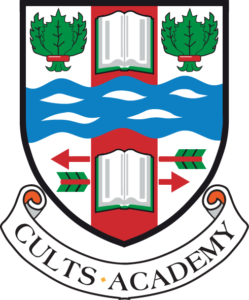Foreign language skills play an important role in our modern society and enable learners to make connections with different people and their cultures, gaining greater insights into other ways of thinking and other views of the world. In addition, the ability to use language lies at the heart of thinking and learning. Learners reflect, communicate and develop ideas through language and the study of a Modern Language has a unique contribution to make to the enhancement of a young person’s literacy, benefitting students’ general education and personal development. These skills will not only be extremely valuable for many career paths and enhance young people’s future employability in the global market, they will also enable them to play a fuller part as global citizens.
French is both a working language and an official language of the United Nations, the European Union, UNESCO, NATO, the International Olympic Committee, the International Red Cross and international courts. French is the language of the three cities where the EU institutions are headquartered: Strasbourg, Brussels and Luxembourg.
As well as being spoken in 23 countries and being the world’s largest first language after Mandarin Chinese, Spanish is also one of the official languages of the European Community, the United Nations and international conferences.
You can find a list of links to useful websites for practising French/Spanish at home on our Revision page.
You can follow the Modern Languages Faculty for updates @CultsML
JUNIOR PHASE
Pupils in S1-S2 follow the Broad General Education (BGE) in preparation for National qualifications. The tasks are differentiated to take into account pupils’ different levels of ability.
The current arrangements in the BGE are that all pupils learn French during the first half of the Junior Stage to allow for continuity from the language studied in Primary. The study of Spanish is then introduced as an additional language for the remainder of the Junior Stage.
In S1, pupils cover the topics of
- personal language
- family
- school and studies
- hobbies
- home area
In S2, pupils will continue to build on their knowledge of French in Listening and Talking, Reading and Writing.
Topics covered will include the following:
- holiday and travel
- media and new technologies
- fashion and other interests
Classwork will also focus on developing effective dictionary skills.
Spanish (beginners’ course)
focus will be on developing a sound knowledge of core vocabulary and grammar.
Pupils will develop their skills in Listening and Talking, Reading and Writing through their study of the topics of:
- personal language
- family
- school and studies
Pupils will further build on the work done in S2, consolidating their knowledge of vocabulary and covering the topics of hobbies and home area, while addressing the relevant aspects of grammar, including starting to look at a range of tenses.
SENIOR PHASE
MODERN LANGUAGES STAFF
Miss N. Genebre – Faculty Principal Teacher
Ms N. Fernanz
Mr G. Murray
